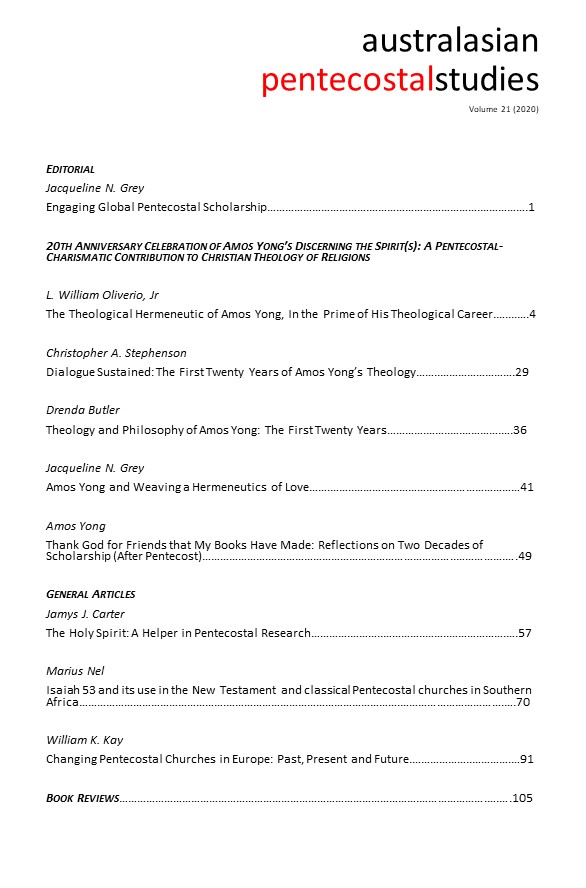Isaiah 53 and its use in the New Testament and classical Pentecostal churches in Southern Africa
Abstract
In Pentecostal parlance one regularly hears that divine healing is founded on Christ’s work on the cross, with reference to Isaiah 53:5, “by his bruises we are healed,” and its use in the New Testament (Matt 8:17; 1 Pet 2:22-25). In this research, Isaiah 53 is placed against its historical context in terms of current scholarship before Pentecostal literature is investigated for its reference to this concept. Then current readings of the Bible in empirical research are used to correlate with the usage in early Pentecostalism before some conclusions are made about Bible reading practices and hermeneutics in the particular church that was investigated, the Apostolic Faith Mission of South Africa (AFM of SA).
Downloads
Published
2020-12-06
How to Cite
Nel, M. (2020). Isaiah 53 and its use in the New Testament and classical Pentecostal churches in Southern Africa. Australasian Pentecostal Studies, 21(1), 70–90. Retrieved from https://aps-journal.com/index.php/APS/article/view/9560
Issue
Section
General Articles
License
Authors who publish with this journal agree to the following terms:
- Authors retain copyright and grant the journal right of first publication with the work simultaneously licensed under a Creative Commons Attribution License that allows others to share the work with an acknowledgement of the work's authorship and initial publication in this journal
- Authors are able to enter into separate, additional contractual arrangements for the non-exclusive distribution of the journal's published version of the work (e.g., post it to an institutional repository or publish it in a book), with an acknowledgement of its initial publication in this journal.
- Authors are permitted and encouraged to post their work online (e.g., in institutional repositories or on their website) prior to and during the submission process, as it can lead to productive exchanges, as well as earlier and greater citation of published work (See The Effect of Open Access).


